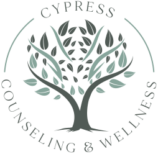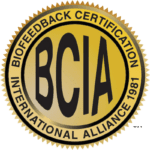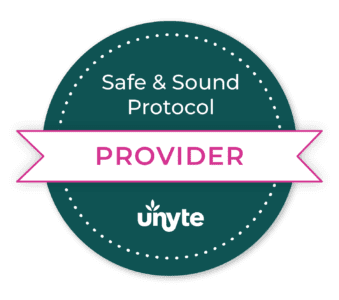Attachment Challenges
Attachment is the invisible thread that weaves our relationships together, but when that thread is disrupted, it can profoundly impact our ability to connect with others. Disrupted attachment often begins in early childhood, shaping the way we experience relationships throughout our lives. It can range from difficulties in forming close connections to more complex issues, such as Reactive Attachment Disorder (RAD). At Cypress Counseling & Wellness, we understand the spectrum of attachment challenges—from the subtle to the severe—and we are committed to supporting individuals and families in healing these wounds with compassion and expertise.
What are Attachment Challenges?
Attachment refers to the emotional bonds we form with others, particularly those closest to us. When early attachment experiences are inconsistent, neglectful, or abusive, the result can be attachment challenges—patterns that can make it difficult to form trusting and secure relationships. There are several styles of attachment that can result from disrupted early bonds, including anxious, avoidant, and disorganized attachment. These patterns affect how we experience intimacy, trust, and emotional closeness, often leading to cycles of anxiety, avoidance, or instability in relationships.
In more extreme cases, attachment challenges can lead to Reactive Attachment Disorder (RAD), a condition that develops when early attachment needs are severely unmet. RAD can present significant challenges in forming emotional bonds, often resulting in behaviors that are difficult to manage and require a nuanced, persistent approach to treatment. It is important to set realistic expectations when working with RAD—while full resolution of symptoms is rare, treatment can lead to meaningful improvements in emotional regulation, relational abilities, and overall functioning. Our goal is to help individuals manage symptoms better, form more meaningful connections, and create a sense of safety in relationships. We have found promise in approaches like neurofeedback, which can help regulate emotional responses and create a foundation for secure attachment.
Attachment patterns are not set in stone. Although early relationships play a significant role in shaping attachment, experiences throughout life—such as romantic relationships, friendships, or therapeutic connections—can reshape and even heal attachment wounds. Understanding your own attachment style can provide valuable insight into current relationship challenges and help you work toward healthier, more satisfying connections.
Our Approach to Healing Attachment Challenges
We believe that healing attachment wounds requires a safe, nurturing environment where you feel understood and accepted. Our approach is centered around helping you understand your attachment style, recognize the impact of past relationships, and learn to develop healthier ways of connecting with others.
-
Emotionally Focused Therapy (EFT): EFT is a powerful tool for attachment work, particularly in couples therapy. It helps partners understand and respond to each other’s attachment needs, creating a sense of safety and closeness that fosters emotional connection. By addressing the fears and insecurities that often underlie conflict, EFT helps couples move toward a more secure attachment with one another.
-
Attachment-Focused Individual Therapy: Disrupted attachment issues don’t only manifest in romantic relationships; they can affect friendships, family dynamics, and even your relationship with yourself. In individual therapy, we work to explore early attachment experiences, understand how they influence your current relationships, and develop new ways of relating that promote emotional security and well-being.
-
Neurofeedback for Attachment Healing: Neurofeedback can be particularly helpful for individuals with more complex attachment challenges, such as RAD. By helping to regulate the brain’s emotional responses, neurofeedback provides a foundation for healthier emotional connections and supports the development of secure attachment over time.
-
Safe and Sound Protocol (SSP): SSP is an evidence-based approach that helps calm the nervous system and promote feelings of safety, making it easier for individuals to engage in attachment work. By creating a sense of physiological safety, SSP helps individuals be more receptive to emotional connection and healing.
-
Inner Child Work & IFS: Many attachment wounds stem from unmet needs in childhood. Inner child work involves reconnecting with the parts of yourself that hold those early experiences and offering them the care, understanding, and support they may have missed. We often integrate elements of Internal Family Systems (IFS) into this work, recognizing that different parts of ourselves hold different experiences and emotions. By nurturing your inner child and understanding these internal parts, you can begin to heal old wounds and create a stronger foundation for healthy relationships.
-
Mindfulness and Self-Compassion: Insecure attachment can lead to harsh self-criticism and difficulty trusting yourself. We incorporate mindfulness and self-compassion practices to help you develop a kinder, more nurturing relationship with yourself. By learning to treat yourself with compassion, you can also improve the way you relate to others.
Building Secure Relationships
Attachment work is about more than understanding the past—it’s about building a future where you feel capable of forming and sustaining healthy, fulfilling relationships. Whether you are looking to improve your relationship with a partner, deepen your friendships, or simply feel more secure in yourself, we are here to guide you through the process. Our approach is compassionate, evidence-based, and tailored to meet your unique needs.
Take the Next Step
If you are struggling with attachment challenges or want to better understand how your past relationships impact your present, Cypress Counseling & Wellness is here to help. We provide a supportive space where you can explore your attachment patterns, heal old wounds, and build stronger, more meaningful connections. Reach out to us today to learn more or schedule an appointment. We are here to support you every step of the way.
 (281) 305-9387
(281) 305-9387





